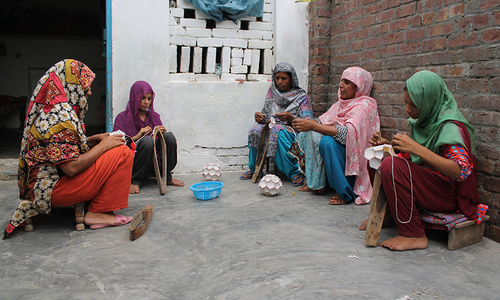Doctors employed by Britain's National Health Service (NHS) may be using surgical tools that have been made by minor children in Punjab's Sialkot district in unsafe working conditions, an investigation by The Guardian has revealed.
Children as young as 12 are employed in surgical instruments workshops of Sialkot, the newspaper reported.
According to the report, the children making surgical tools for export at such workshops are paid less than Rs110, while minors were seen to be illegally employed by at least a dozen businesses.
Under Punjab's laws, children younger than 18 are banned from working in “hazardous industries”, while children under 14 cannot work at all.
The investigation has sparked concerns in the UK that tools used in NHS operating theatres and consulting rooms are product of child labour.
Three companies that export to the UK, the third largest buyer of surgical instruments from Pakistan, told the paper that they purchase instruments from these workshops.
NHS Supply Chain, one of the largest suppliers to the health service, admitted it wasn't aware which manufacturers are used by its suppliers in Pakistan. NHS Supply Chain bans child labour from its “first tier” suppliers, most of whom are UK-based.
A spokeswoman said NHS Supply Chain was aware of the potential for labour standards abuses within supply chains, but it was committed to working with suppliers to curtail the problem.
Hazardous working conditions
The children working at Sialkot's workshops often work late hours and without any protective gear such as goggles, earphones or masks, the report said.
The unsafe working conditions often result in the children contracting asthma and other respiratory problems.
A 12-year-old boy who has been working at a surgical instrument shop in Sialkot for past eight months works eight hours a day, six days a week and earns nearly Rs2,700 per month.
“I know it’s dangerous, but I have to pay some debts and support my family,” he told The Guardian.
The owner of a workshop where children are employed said his business had never been inspected by the Punjab Labour & Human Resource Department in 25 years.














































